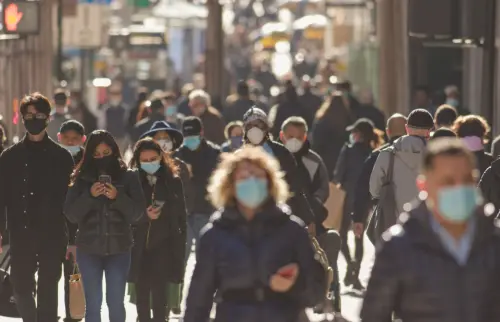Caitlin Dickerson’s New York Times article titled “‘There Is a Stench’: Soiled Clothes and No Baths for Migrant Children at a Texas Center” should have us all quaking. How can government lawyers argue that no soap, lights on all night, and minimal food are safe and sanitary conditions for children? Who have we become as a nation? This article prompted the Society for Research in Child Development to issue a statement about the long-term consequences of separating children from their parents. It starts, “The science is clear…” and goes on to cite well-established research studies showing that children separated from their parents experience toxic stress that has cascading negative effects on social-emotional, mental, and physical health, as well as on cognitive outcomes.
The Society for Research in Child Development response offers critical data that bears on the future trajectories for these children, but it does not go far enough. There is ample research to show that cleanliness, sleep, nutrition, and exercise are imperative for a growing brain.
What the research shows
No soap contributes to a disease-ridden environment, and children with health issues tend to have poor emotional skills and mental well-being. Common complications of not treating illnesses like flu and sinus infections, for example, include bacterial pneumonia, dehydration, and ear infections. Deplorable physical conditions including dirty and disorganized environments can cause depression and even aggressive, angry, or violent behavior.
Lights on all night disturbs sleep patterns that can impact brain development and future learning skills. The effects of insufficient sleep on children include cognitive confusion and attention, memory, and learning problems, as well as difficulties with executive functioning skills. It is not clear whether these effects persist over the long term even if conditions improve.
With minimal food, children do not get the nutrients they need to support healthy brain growth and may develop cognitive and socioemotional deficits that last a lifetime. Many studies have investigated individual associations between diet diversity, malnutrition, and mental development. Indeed, food insecurity leads to deficiencies in iron and zinc, which in turn can affect brain functioning in children. Other known results are reduction in energy, social dysfunction, and heightened aggressiveness.
No exercise is a natural consequence of a border patrol that is keeping children in cells with little opportunity for recreation or physical activity—both elements central for brain development. According to the Centers for Disease Control and Prevention, the role of exercise in children’s present and future health status cannot be overestimated; physical activity promotes health and fitness and is linked to the reduction of risk factors needed for a healthy adulthood. Physical activity is associated with improved cognitive memory, executive function, brain processing speed, attention, and school performance, and even reduced symptoms of depression.
Even during armed conflict, the international community has long recognized the special needs of children. In the aftermath of World War II, the Geneva Convention stated—in no uncertain terms—that children “form part of the civilian population and as such enjoy the rights and benefits accorded to the civilian population in addition to the special rights and protection (Article 13).” More recently in 1989, the United States joined the United Nations in supporting the “rights of the child.” As a matter of international law, states must act in the best interests of the child including ensuring rights to care, protection, and safety and creating environments that support the child’s skills and development.
Indeed, even the conditions of laboratory animals are regulated by ethical standards to ensure safe, sanitary, and humane conditions. How can we treat children worse than we would animals?
As a nation, we are failing to respect the dignity of human life. We risk dooming innocent children to a future in which they may never be productive citizens of any country. The science is indeed clear: The conditions in which immigrant children are held at the border puts them at tremendous risk for toxic stress and related health, mental, and cognitive outcomes that can last a lifetime.
The White House has indicated it will sign an emergency spending bill for the crisis into law—it is imperative to act as quickly as possible to reverse any policy or practice that harms children.





Commentary
Neglect of children at the border has long-term consequences
June 28, 2019